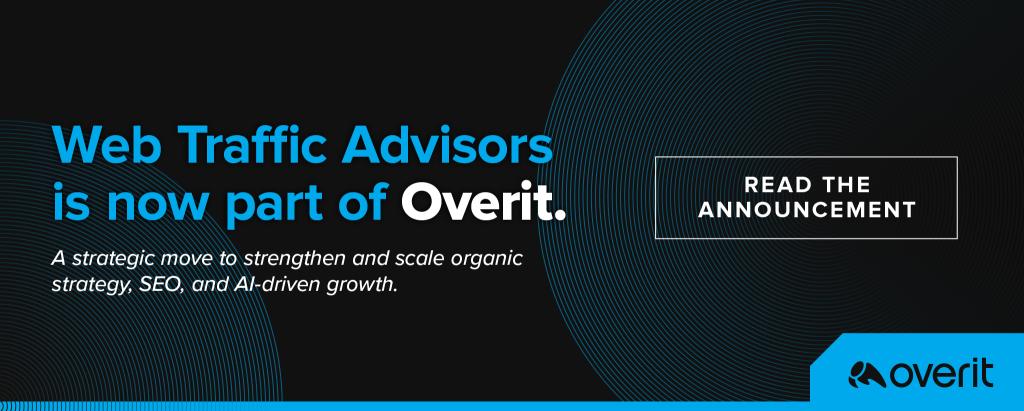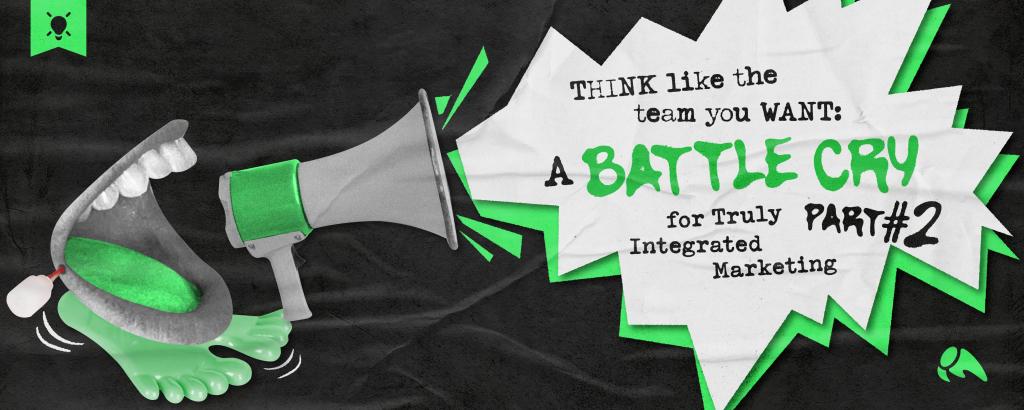Building an agency over the past two decades has proven to be an ever-evolving lesson in growth, patience and determination. We’ve built process on top of process, and while sometimes exhausting, we are always better for it.
Three things we’ve focused on above all else:
- Hiring the right people.
- Finding the right space
- Growing a motivated team
1. Hiring The Right People
We’re always on the hunt for new talent and the people who will add value to Team Overit. Your organization probably is too. So what are we looking for during the scouting or interviewing process?
Do they meet our talent needs?
Whether a designer, developer, motion artist or a marketer, you need to take a look at your job needs to determine if this person is a match for the position you are looking to fill. One of the biggest traps I’ve fallen into was to start redeveloping a job description in the midst of interview due to my liking of an individual or being excited about a talent that he or she has that is not even in scope of our needs.
While it’s important to grab talent when it’s available, hoarding friendly faces that don’t fill the roles you’re looking for isn’t a sound business strategy. Go after those rockstars when you find them, but be mindful of how they will fit into your organization and the holes they’re filling. Otherwise, you’ll end up growing your staff, without addressing the needs of your business.
Is the potential employee knowledgeable of your company?
I don’t expect someone to walk through the door knowing the full 20 year history of Overit, but it is helpful when he or she has done their homework. If an individual has done enough research to get a good sense of what the company is about and envisions themselves as a part of that culture, that’s a good place for us to start a conversation. I live and die by being pro-active and not reactive as much as possible in business and personal life. If I can sense that trait in a potential hire, I get excited.
What does their work history say?
Another item of importance: How long have has the applicant stayed at previous positions? Are they a lifer or a jumper?
Obviously there are always “fluke” or “mistake” situations, but your resume tells me different things if you’re someone who has had three jobs each lasting four years or if you’ve had three jobs in the past six months. One will fill me with a whole lot more confidence in the other. There are always exceptions, but patterns are patterns. And that’s something we want to take a look at. Or at least have a conversation about.
Do They Fit?
While Overit has seen considerable growth in recent years, we still think of ourselves as a small team. As such, culture (real work culture) and company fit are incredibly important. Overit has never been “just a job” to our employees, it’s been an almost obsession. While not everyone has to fall into that bucket, it’s hard to consider bringing anyone in if they’re not excited about what we do and how we perform.
I remember showing a young college graduate around our production floor and introducing him to some employees. He had fantastic skill and talent, however, after showing him the space I asked him for his thoughts. His response?
Needs more natural light and open space.
Alrightly then. Whether he was right or not, no one wants to surround themselves with that guy.
The interaction left me with a bad taste in my mouth and I wasn’t convinced he’d “fit” the culture of the company. If he was more concerned with the lighting than what the team was producing, he may be better suited for a different team.
[He’d probably be happy to know we’ve since rehabbed a 13k sq foot church so lots of heavenly light and space. 😉 ]
2. Designing The Right Work Space
There’s always a lot of debate about how the “ideal” workspace looks like.
Some favor open, hive-like work environments [PDF], while others believe closed, segmented offices that promote individual work (and silence) are the way to go.
There are some pretty big pros and cons for us. For us, moving from a segmented 4k sq foot space to an open 13k sq ft space made a big difference in many ways.
In a closed off working environment, it was easier for people to seclude themselves into a personal workflow. It seemed much quieter and a less hectic atmosphere. I believe it provided a sense of personal space to each individual that made them comfortable. This was great for some, but for many others it hindered collaboration.
One of the things we pride ourselves in most at Overit is that we have seven expert department areas working side-by-side. It’s a huge advantage for clients when your content team is working directly with your SEO department which sits sandwiched between design and development. This is what Overit offers. However, the more closed off your office, the harder this integration can be to attain.
So we changed it.


Since moving into a more open space work environment, the team is much more engaged with each other – collaboratively and socially. It’s enhanced communication and excitement where any day walking into Overit you’re just as likely to see Nerf gun fights between departments as you are meetings. The space allows for interaction unlike anything we were able to provide previously. It is interesting that a change in environment will actually cause a change in mindset and morale.
Of course, the open work environment hasn’t come without any obstacles, mainly personal space, noise and heating.
It’s also known to get a little noisy out on the production floor. But it’s usually laughter, which never really hurts an environment.
While open space may have its own the good, the bad, and the ugly, for us, we couldn’t go back.
3. Growing A Happy Team
Keeping great talent is a tall order. I’ve been fortunate enough to work with some extraordinary talented people, many of whom I consider the future of our industry. Retaining happy, motivated employees is a hard tasks and it means different things to different people. Below is some of what’s worked for me over the years
Be honest and direct
Regardless of your fears or potential fallout, approach problems quickly and directly. Sometimes it is hard because you do not want to stir the pot or cause problems, however, by putting it off you will always fall to a worse outcome.
I had a situation not long ago where a client was abusing our design department to the point of frustration, anger, and literally exhaustion. As the boss, I was in a difficult situation. I understood the designer’s view and it made sense to me, however, I was also concerned with keeping our client happy. But where is the line there? I needed to approach this client and have the “hard talk”, straight and honest.
But I didn’t. I waited and made excuses. By not defending my team, I aggravated a fantastic designer who felt abused and cheated. At the end of the day the client was, well, the same they would have been regardless. But the employee was angered and burnt. This was not a good situation for me, the client and especially the designer.
Encourage growth
Nothing is as important in our world as personal growth and exploration. We take notice of our team’s passions and desires in the workplace, and we believe it’s something that needs to be supported and not frowned upon. This includes allowing employees to take on freelance work (with some guidelines, of course), to keep their own projects, to blog, to become thoughtleaders in their own right, and to do what motivates them.
My job as the boss means doing whatever I can to showcase an individual’s talent and expertise. This not only helps the person flourish and become more confident and excited but, in turn, you get a happy motivated and loyal employee.
Listen
Listen to what your staff and co-workers are telling you. They will be your most honest and best critics, and will give you the insight and vision you need to set and accomplish your goals. If you listen, you will learn.
Listening is not as easy as easy as everyone thinks. Stop and really concentrate on the discussion you are having. Take it in and ask questions and you will benefit many rewards. This is personally what I am working on currently. I am pulled in a ton of directions and really need to stop slow down and listen. I will continue to try and I will get better and in turn I will succeed.
Focusing on hiring the right people, developing the right space, and motivating our team have always been at the core of Overit.







